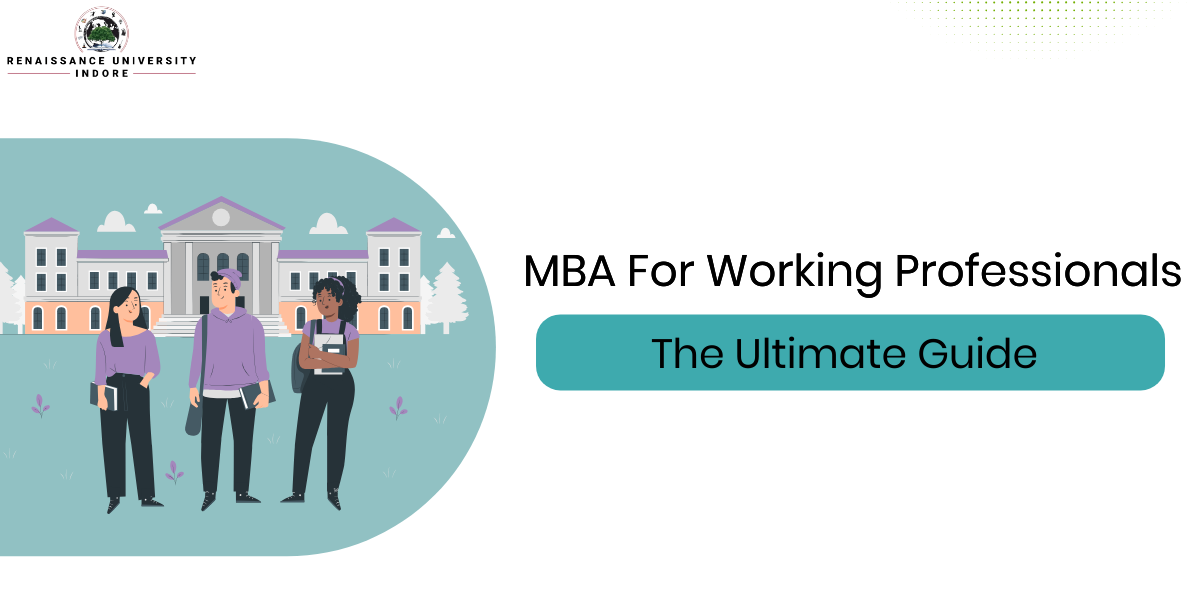In today’s dynamic professional landscape, the pursuit of continuous learning and skill enhancement is crucial for career growth. For working professionals, a Master of Business Administration (MBA) can be a game-changer, opening doors to new opportunities and expanding their horizons. Let’s delve into the various facets of pursuing an MBA for working professionals, exploring the types, advantages, tips and courses available.
An MBA, or Master of Business Administration, is a postgraduate degree that equips individuals with a comprehensive understanding of business principles. It goes beyond the theoretical aspects, emphasizing practical applications and strategic thinking.
Importance of MBA for Working Professionals
For working professionals, an MBA is not just an academic pursuit but a strategic investment in their career. It provides a platform to refine skills, enhance leadership capabilities, and stay competitive in today’s fast-paced business world.
Types of MBA Programs
A. Part-time MBA
Part-time MBA programs cater to professionals who cannot commit to full-time study. With flexible schedules, individuals can balance their work commitments while acquiring valuable knowledge. The key advantage lies in the ability to apply theoretical learning directly to the workplace, creating a symbiotic relationship between education and professional experience.
B. Executive MBA (EMBA)
Designed for senior executives, an EMBA (executive MBA for working professionals) focuses on advanced leadership and strategic management. It provides a platform for experienced professionals to refine their skills and broaden their perspectives.
EMBA programs emphasize leadership development, enabling participants to lead with vision and navigate complex business challenges effectively.
C. Online MBA
Online MBA programs offer accessibility, allowing professionals to study from anywhere in the world. This flexibility is particularly beneficial for those with demanding work schedules.
The integration of technology enhances the learning experience, making it interactive and engaging. Online forums and virtual classrooms facilitate collaboration and knowledge-sharing.
D. Dual MBA Programs
Dual MBA programs allow professionals to pursue two complementary degrees simultaneously, such as an MBA paired with a Master’s in a specific industry or a foreign language.
This type of program broadens skill sets and knowledge bases, making professionals more versatile in the global job market.
E. Global MBA
Global MBA programs are designed to provide a truly international perspective. They often include modules or entire semesters abroad, exposing professionals to diverse business cultures.
Participants gain invaluable experience collaborating with peers from different countries, preparing them for leadership roles in multinational companies.
Advantages of Pursuing an MBA
1. Higher Earning Potential
Statistics consistently show that MBA graduates command higher salaries. The investment in education often translates into increased earning potential and career advancement.
2. Expanded Network
MBA programs provide a unique networking opportunity. Interacting with peers, professors, and industry experts fosters valuable connections that can last a lifetime.
3. Leadership Skills
MBA programs focus on leadership development, nurturing skills that are essential for managerial roles. The ability to inspire and lead teams becomes a significant asset.
4. Strategic Thinking
Strategic thinking is a cornerstone of MBA education. Professionals learn to analyze situations, make informed decisions, and contribute strategically to their organizations.
5. Business Acumen
An MBA equips individuals with a comprehensive understanding of business operations, fostering a strong foundation in business acumen.
6. Risk Management
Entrepreneurship often involves risk-taking. MBA programs instill risk management skills, enabling professionals to navigate uncertainties in the business landscape.
7. Cultural Intelligence
MBA programs often include an international perspective, promoting cultural intelligence. This is invaluable in today’s globalized business environment.
8. Global Networking
Connecting with professionals from diverse backgrounds fosters a global network, essential for those aspiring to work in international markets.
Best MBA Courses for Working Professionals
A. MBA in Finance
An MBA in Finance delves into financial management, equipping professionals with the skills to make sound financial decisions and manage resources efficiently. Understanding investment strategies and portfolio management is a key focus, preparing individuals for roles in the financial sector.
B. MBA in Marketing
Marketing-focused MBA programs delve into brand management, teaching professionals how to build and sustain strong brands in competitive markets. In the digital age, proficiency in digital marketing is essential. MBA programs in marketing incorporate strategies for online brand promotion and customer engagement.
C. MBA in Technology Management
Technology management programs focus on innovation and the integration of technology into business processes, preparing professionals for roles at the intersection of business and technology. A crucial aspect of technology management, project management skills are honed to ensure the successful implementation of technology-driven initiatives.
D. MBA in Healthcare Management
Understanding the intricate landscape of healthcare policies and regulations is crucial for professionals in the healthcare management domain. The integration of data analytics in healthcare management optimizes decision-making and improves patient outcomes.
F. MBA in Business Analytics
An MBA in Business Analytics focuses on leveraging data to make informed business decisions. It equips professionals with skills in data analysis, predictive modeling, and business intelligence. Professionals gain the ability to extract actionable insights from data, contributing to strategic planning and enhancing the overall efficiency of business operations.
Overcoming Challenges
A. Time Management
Balancing work commitments with MBA studies requires effective time management. Planning and prioritizing tasks are essential for success in both realms.
B. Financial Constraints
While the benefits of an MBA are substantial, it’s crucial to address financial constraints. Seeking scholarships, employer support, or part-time work can help mitigate financial challenges.
C. Work-Life Balance
Maintaining a healthy work-life balance is paramount. Setting realistic expectations and communicating with employers about study commitments can contribute to a harmonious balance.
Choosing the Right Program
Guidance on thorough research before selecting an MBA program, considering factors such as accreditation, faculty expertise, and alumni success, ensures a well-informed decision. Advising professionals to align their choice of MBA program with their long-term career goals enhances the likelihood of a fulfilling and rewarding educational journey.
Tips for Balancing Work and MBA Studies
A. Effective Time Management
Practical tips on managing time effectively, including creating schedules, prioritizing tasks, and leveraging technology, help professionals strike a balance between work and studies.
B. Utilizing Employer Support
Highlighting the importance of communicating with employers about educational pursuits and leveraging employer support, such as flexible schedules or financial assistance, facilitates a smoother journey.
In conclusion, pursuing an MBA as a working professional offers a myriad of advantages, from career advancement and skill enhancement to global networking opportunities. The diverse types of MBA programs cater to different needs, allowing professionals to tailor their education to align with their career goals. As technology and globalization continue to shape the future of business education, the relevance of an MBA for working professionals remains robust.
FAQ
Q1: Can I pursue an MBA if I have been working for several years?
Absolutely! Many MBA programs, especially Executive MBA (EMBA) and part-time programs, are designed for seasoned professionals looking to enhance their skills and advance their careers.
Q2: How can I finance my MBA as a working professional?
Financial constraints can be addressed through various means, including scholarships, employer support, and part-time work. Many employers offer tuition reimbursement or support for professional development.
Q3: Are online MBA programs as reputable as traditional ones?
Yes, online MBA programs from accredited institutions are highly reputable. They offer the flexibility of remote learning while maintaining the same rigorous academic standards.
Q4: What is the average duration of an Executive MBA program?
Executive MBA programs typically last around 18 to 24 months, allowing working professionals to balance their studies with their professional commitments.
Q5: How can an MBA in Healthcare Management benefit my career in the healthcare industry?
An MBA in Healthcare Management equips professionals with business acumen and strategic skills, preparing them for leadership roles in healthcare organizations. It’s particularly beneficial as the industry evolves and faces new challenges.




